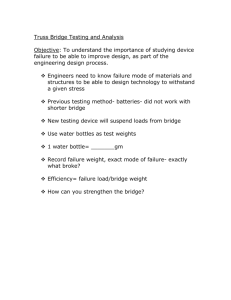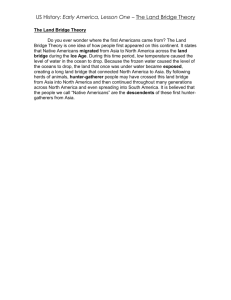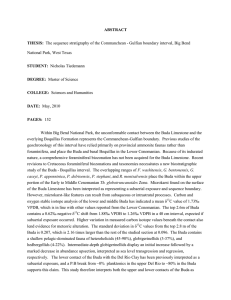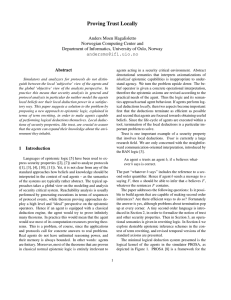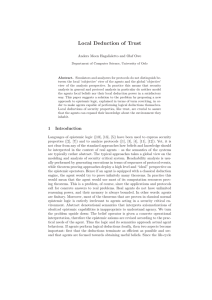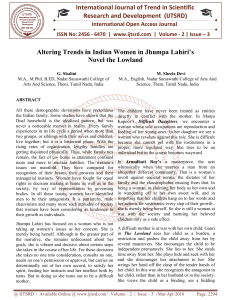Levél Ferencz SárinakBudapest, 1946 - Gács
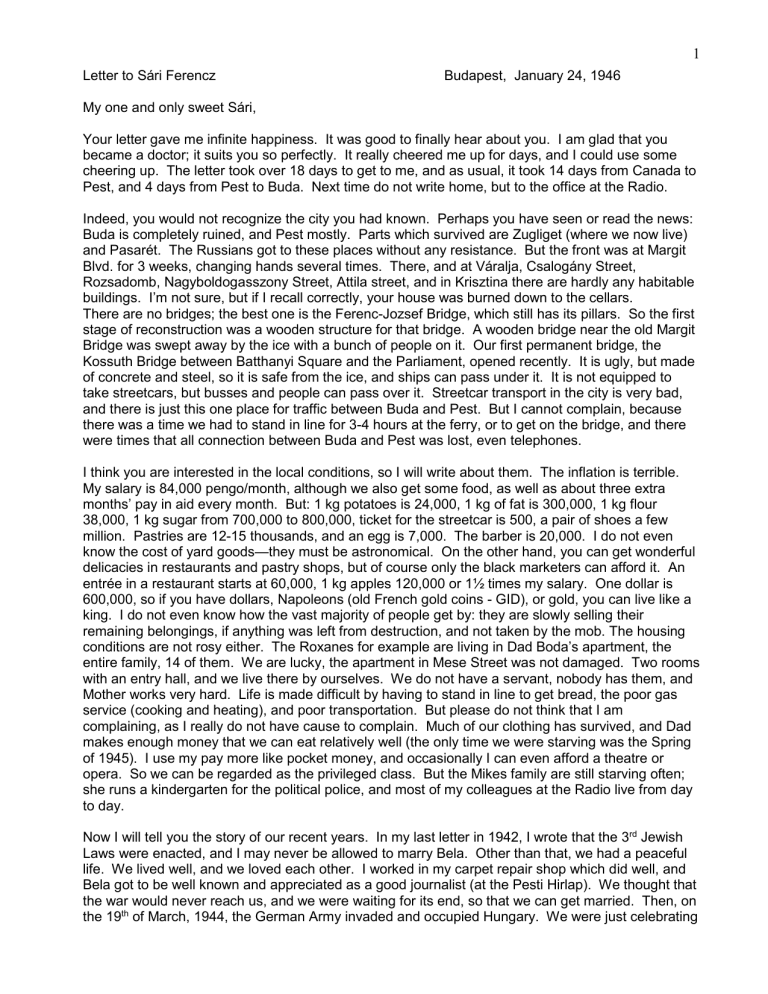
1
Letter to Sári Ferencz
My one and only sweet Sári,
Budapest, January 24, 1946
Your letter gave me infinite happiness. It was good to finally hear about you. I am glad that you became a doctor; it suits you so perfectly. It really cheered me up for days, and I could use some cheering up. The letter took over 18 days to get to me, and as usual, it took 14 days from Canada to
Pest, and 4 days from Pest to Buda. Next time do not write home, but to the office at the Radio.
Indeed, you would not recognize the city you had known. Perhaps you have seen or read the news:
Buda is completely ruined, and Pest mostly. Parts which survived are Zugliget (where we now live) and Pasarét. The Russians got to these places without any resistance. But the front was at Margit
Blvd. for 3 weeks, changing hands several times. There, and at Váralja, Csalogány Street,
Rozsadomb, Nagyboldogasszony Street, Attila street, and in Krisztina there are hardly any habitable buildings. I’m not sure, but if I recall correctly, your house was burned down to the cellars.
There are no bridges; the best one is the Ferenc-Jozsef Bridge, which still has its pillars. So the first stage of reconstruction was a wooden structure for that bridge. A wooden bridge near the old Margit
Bridge was swept away by the ice with a bunch of people on it. Our first permanent bridge, the
Kossuth Bridge between Batthanyi Square and the Parliament, opened recently. It is ugly, but made of concrete and steel, so it is safe from the ice, and ships can pass under it. It is not equipped to take streetcars, but busses and people can pass over it. Streetcar transport in the city is very bad, and there is just this one place for traffic between Buda and Pest. But I cannot complain, because there was a time we had to stand in line for 3-4 hours at the ferry, or to get on the bridge, and there were times that all connection between Buda and Pest was lost, even telephones.
I think you are interested in the local conditions, so I will write about them. The inflation is terrible.
My salary is 84,000 pengo/month, although we also get some food, as well as about three extra month s’ pay in aid every month. But: 1 kg potatoes is 24,000, 1 kg of fat is 300,000, 1 kg flour
38,000, 1 kg sugar from 700,000 to 800,000, ticket for the streetcar is 500, a pair of shoes a few million. Pastries are 12-15 thousands, and an egg is 7,000. The barber is 20,000. I do not even know the cost of yard goods —they must be astronomical. On the other hand, you can get wonderful delicacies in restaurants and pastry shops, but of course only the black marketers can afford it. An entrée in a restaurant starts at 60,000, 1 kg apples 120,000 or 1½ times my salary. One dollar is
600,000, so if you have dollars, Napoleons (old French gold coins - GID), or gold, you can live like a king. I do not even know how the vast majority of people get by: they are slowly selling their remaining belongings, if anything was left from destruction, and not taken by the mob. The housing conditions are not rosy either. The Roxane s for example are living in Dad Boda’s apartment, the entire family, 14 of them. We are lucky, the apartment in Mese Street was not damaged. Two rooms with an entry hall, and we live there by ourselves. We do not have a servant, nobody has them, and
Mother works very hard. Life is made difficult by having to stand in line to get bread, the poor gas service (cooking and heating), and poor transportation. But please do not think that I am complaining, as I really do not have cause to complain. Much of our clothing has survived, and Dad makes enough money that we can eat relatively well (the only time we were starving was the Spring of 1945). I use my pay more like pocket money, and occasionally I can even afford a theatre or opera. So we can be regarded as the privileged class. But the Mikes family are still starving often; she runs a kindergarten for the political police, and most of my colleagues at the Radio live from day to day.
Now I will tell you the story of our recent years. In my last letter in 1942, I wrote that the 3 rd Jewish
Laws were enacted, and I may never be allowed to marry Bela. Other than that, we had a peaceful life. We lived well, and we loved each other. I worked in my carpet repair shop which did well, and
Bela got to be well known and appreciated as a good journalist (at the Pesti Hirlap). We thought that the war would never reach us, and we were waiting for its end, so that we can get married. Then, on the 19 th of March, 1944, the German Army invaded and occupied Hungary. We were just celebrating
2 the 7 th anniversary of our friendship in Kiskoros, where Roxan’s husband was a judge. Two days later, on a terrible morning, they took dad from home, and the Germans interned him as a hostage.
A few weeks later, the wearing of a yellow star was ordered for all Jews. We did not really suffer from that: there were much bigger problems. I remember all the troubles: how Pityu got beaten up on the street, how we were afraid of the police, how I did not dare to appear with Bela on the street, how acquaintances were afraid to acknowledge us in public, how we had to do all shopping between
11 AM and 1 PM, how we were not allowed to use the telephone, and had to use the end of the tram.
We still were doing okay, but in the country they started the deportations, and our family from
Fehervar was taken away (in part they survived). In June, they passed orders that all Jews must live in houses marked with yellow stars. At that point life became life threatening to us, and my mother and I went into hiding. Pityu was in Army labor-camp in Transylvania, in very bad conditions. Bela obtained false papers for all of us and took mother to Miskolc for a “vacation”. She stayed there till
September, when my father was released. I went to work for a German baroness as a governess for
3 children in the Danube-Tisza countryside. I had a good life; they liked me, I liked them, and they never found out that I was Jewish. Bela helped our entire family in hiding, and really everybody who asked him: army deserters, communists, or Jews. He lived in constant danger of getting killed, he organized resistance, spread pamphlets and wrote slogans on the walls at night. I found all of this out after he came to an end. Now, he has become a national hero, and the house where he got killed now has a plaque. He is memorialized at assemblies and in the newspapers. But how I hate
“heroism”! I continue my story: in September Dad was released, and when on October 15 Governor
Horthy declared armistice, my brother Pityu escaped from his labor battalion. The family of the
German baron and I came up from the country to Budapest, fleeing from the advancing Russians.
On October 16, the Szalasi group (the fascist Hungarian party) took power in Budapest, set up the ghetto, deported and killed masses of Jews from Pest. Every night, they took groups of naked men to the side of the Danube, and shot them into the river.
In November, my grandmother (Mom 's mother), 75 years old, was forced to walk towards Germany for 6 days in cold rain. We could not help her. Bela even went to the brick factory where she was kept earlier in staff officers' uniform to get her out, but could not find her. We know that poor soul got as far as Győr, but we know nothing beyond that. They either shot her, or she just died on the road.
We were convinced that we would not get away with our hiding, but miraculously we managed to survive.
Christmas afternoon, Bela left home to the resistance group he organized. They tried to save the printing presses of Pesti Hirlap (a daily paper) from the Germans. But there must have been a leak, and truckloads of fascists surrounded them 5 minutes after they got there, and all of them were killed. Bela fought for 1½ hrs with grenades and a gun. That evening, I waited in vain. On that day, the Russians closed the circle around Budapest, and the siege began. I went to look for Bela, running around for a week to find out what had happened. The streets were empty except for soldiers and guns. Of course there was no transportation or telephone, and all men except soldiers were in hiding. The fascists were wild. I looked for him in the Nyilashaz (Facsist Center), at the police, until finally the clues led me to the house on Clotild St where he was killed.
I left the German family and returned to my parents. The building where we stayed was destroyed, but we did not get hurt. Pityu (my brother) was captured by the Gestapo (luckily not as a Jew, but as a deserter), but he escaped and hid out in Varosliget (City Park). When the Russians came, they arrested him twice, but he got away both times. The fascists took my father into the Nyilasház (the
Facsist Center), strip-searched him to check if he is Jewish but then released him. On January 14 the Russians came in - it was a happy and exciting event. The occupying force (Russians) were wild a bit, but things are now okay, and we are free. The mob plundered, broke into the shops, and tore the dead horses on the street into pieces for food. Certainly, war and a siege are not pretty.
As soon as one could go out on the street, I went to the Apponyi Clinic to help the injured with nursing. I was on the male surgery section, among the war wounded. But they all died, because we had no supplies: no bandages, no medicine, no disinfectants, no bedding, not even beds. For food,
3 it was a cup of coffee and a cup of soup a day. We got the same “food”. The injured were laying on stretchers in the corridors, or three to a bed in the basement, with open wounds. It is not good to talk about it; it was a disgusting place. I am sure that I could tolerate it only because I was totally numb at the time. I lived in the basement too, among the injured, some of them dead. Sometimes for days we could not change our clothes, and we were full of lice.
The conditions in the city have started to improve. The streets were so full of street vendors that one could barely walk. You could get things like chocolates and donuts (at astronomical prices), stuff the starving population had not seen for years. You could get bread again – we had not seen any since
December. Most people were bartering, but gradually you could buy things for cash. Prices even started to drop; things were very encouraging. At the end of February Buda was liberated, and soon the Ferenc-Jozsef Bridge was usable with a temporary wooden structure. Then, in the Fall of 1945, the conditions got worse, with early cold weather and rapid inflation. But Spring was coming and the prospects now are good. We have a republic with a new president. I understand Tildy (the new president) is a very good man. We got promises of foreign aid, and we have even received some.
There is a brisk political life, and fortunately everybody is in full agreement. Personally, I am on the left, attracted by the Peasant Party and the Labor Front, though the Smallholders (Farmers Party) won the elections.
To discuss my work: I work at the Radio (government owned - GID) in the foreign affairs section, as a secretary, translator, and foreign language shorthand and typing. It is very interesting and good work, and I am learning a lot, getting good in my English. I also enrolled at the university, in French and English. I have a lot to do, but it is interesting and varied.
Andi Kandel got married; she lives on the adjacent street, and her husband works in an office. Evi
Csohány is also married. She has a nice little son but does not know what happened to her husband. Bilke Pap ‘Iduci’s brother and sister are in custody for collaborating with the fascists - apparently I was right to always dislike them. Otherwise, Ida has also gotten married recently.
Generally, almost all our friends have gotten married and have kids too. Kiskutya is even expecting her second child. So what is the news with you? I am curious and bit worried; would you have gotten married without my ‘consent’? Do you want to come home, now or ever?
I still say that I could not ever leave for good, but would love to get away for a few years. One must get away from this city, where everything has changed, been destroyed, yet it reminds one of everything in the past. I would go anywhere now if I could go. But this is impossible for the time being. Nobody can travel to the West; we cannot even send mail. I am trying to send this letter through the British or US Missions, so I hope it will arrive. Please answer me immediately, and in as much detail as possible, I would like to hear it all from you. Sari, it was wonderful to get your letter.
Tell Agi not to be angry that I do not write to her separately. I would have written her the same things as I did to you. I am sure you will show her my letter. We send you all many kisses, my Mother to your Mother. My mother has said almost every day: I wish we would have gone with the Ferenczi-s.
Oh yes, a package! I do not want to be immodest: I must admit that one would be most welcome. It is not a matter of survival for me, unlike for many others, but just getting something from faraway
America, and from you, would be magnificent. I do not even know if sending packages is a possibility, and if it is, what can be sent? Most important would be woolen knit clothing. I think that might be the easiest to send. I do not know if you use saccharin in Canada; we use it here to substitute for sugar, but here they only sell a poor imitation. Otherwise it does not matter, you could send anything. I thank you very-very much, and hope I can respond some day.
Kisses.

